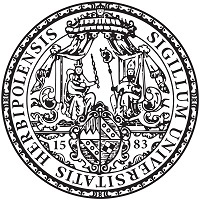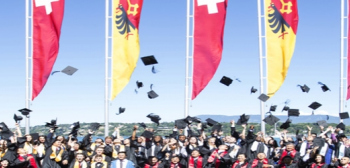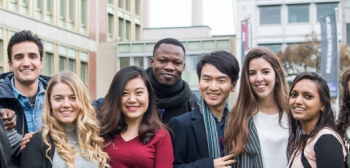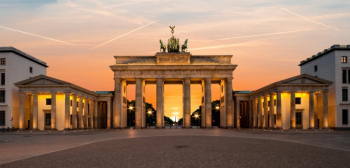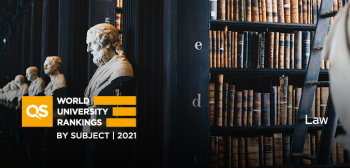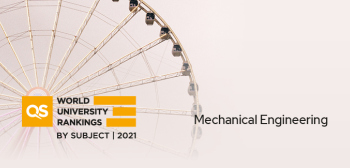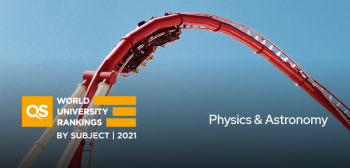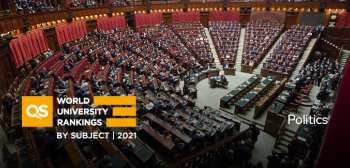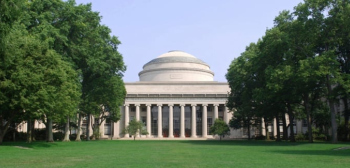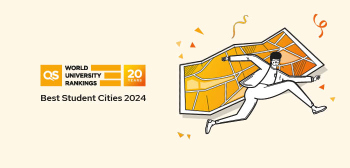维多利亚州立大学
About
Originally founded in 1402, Julius-Maximilians-Universität Würzburg (JMU) is one of the oldest universities in Germany. Having grown into a comprehensive research-intensive university, JMU has been committed to the advancement of “Science for Society” for centuries. Many eminent scientists have studied, taught and conducted research here. JMU’s tradition of cutting-edge research continues to inspire its scientists to strive for new insights at the frontiers of knowledge. To date, 27 ERC Grants for innovative frontier research have been awarded to scientists at JMU. Eleven JMU researchers have received the prestigious Gottfried Wilhelm Leibniz Prize of the Deutsche Forschungsgemeinschaft.
Currently, JMU has about 29,000 students who are enrolled in ten faculties and four graduate schools. Approximately 440 professors are active in research and teaching at the university and the university hospital. JMU offers more than 100 subjects in the humanities and the social sciences as well as in the natural and life sciences. The university’s profile is shaped by eight interdisciplinary priority areas:
- Life Sciences
- Health Sciences
- Molecular Chemistry and Materials
- Quantum Phenomena in New Materials
- Digital Society
- Cultural Heritage
- Norms and Behavior
- Global Change
An extensive choice of degree programs is available to students. In addition to classical disciplines such as law, economics, various philologies, medicine, mathematics, physics, and chemistry, many innovative degree programs have been introduced. Among the most recent examples are Nanostructure Technology, Functional Materials, Games Engineering, Digital Humanities, Biofabrication and Human-Computer Interaction – to name but a few.
Teaching and research are closely intertwined at JMU. Lecturers bring the latest research findings into their classrooms, and students are actively involved in research projects. Early career researchers find a supporting and inspiring environment in which early independence is strongly encouraged. The JMU Research Academy provides training, counseling, mentoring, and other professional development activities for academic staff at all career levels.
About
Originally founded in 1402, Julius-Maximilians-Universität Würzburg (JMU) is one of the oldest universities in Germany. Having grown into a comprehensive research-intensive university, JMU has been committed to the advancement of “Science for Society” for centuries. Many eminent scientists have studied, taught and conducted research here. JMU’s tradition of cutting-edge research continues to inspire its scientists to strive for new insights at the frontiers of knowledge. To date, 27 ERC Grants for innovative frontier research have been awarded to scientists at JMU. Eleven JMU researchers have received the prestigious Gottfried Wilhelm Leibniz Prize of the Deutsche Forschungsgemeinschaft.
Currently, JMU has about 29,000 students who are enrolled in ten faculties and four graduate schools. Approximately 440 professors are active in research and teaching at the university and the university hospital. JMU offers more than 100 subjects in the humanities and the social sciences as well as in the natural and life sciences. The university’s profile is shaped by eight interdisciplinary priority areas:
- Life Sciences
- Health Sciences
- Molecular Chemistry and Materials
- Quantum Phenomena in New Materials
- Digital Society
- Cultural Heritage
- Norms and Behavior
- Global Change
An extensive choice of degree programs is available to students. In addition to classical disciplines such as law, economics, various philologies, medicine, mathematics, physics, and chemistry, many innovative degree programs have been introduced. Among the most recent examples are Nanostructure Technology, Functional Materials, Games Engineering, Digital Humanities, Biofabrication and Human-Computer Interaction – to name but a few.
Teaching and research are closely intertwined at JMU. Lecturers bring the latest research findings into their classrooms, and students are actively involved in research projects. Early career researchers find a supporting and inspiring environment in which early independence is strongly encouraged. The JMU Research Academy provides training, counseling, mentoring, and other professional development activities for academic staff at all career levels.
University highlights
- 2012#292
- 2014#=325
- 2015#=341
- 2016#401-410
- 2017#421-430
- 2018#481-490
- 2019#521-530
- 2020#=462
- 2021#=437
- 2022#=378
- 2023#=410
- 2024#=440
- 2025#=428
- 2026#=416
Campus locations
Julius-Maximilians-Universität Würzburg,
Sanderring 2 , Würzburg , Germany , 97070
Similar Universities
Lancaster University Leipzig
The Post, Augustusplatz 1-4, Leipzig
ESCP Europe Business School
Heubnerweg 8-10, Berlin
SRH Hochschule Berlin
Ernst-Reuter-Platz 10, Berlin
Macromedia University of Applied Sciences
Mehringdamm 33, Berlin
柏林欧洲管理与技术学院
Schlossplatz 1, Berlin

